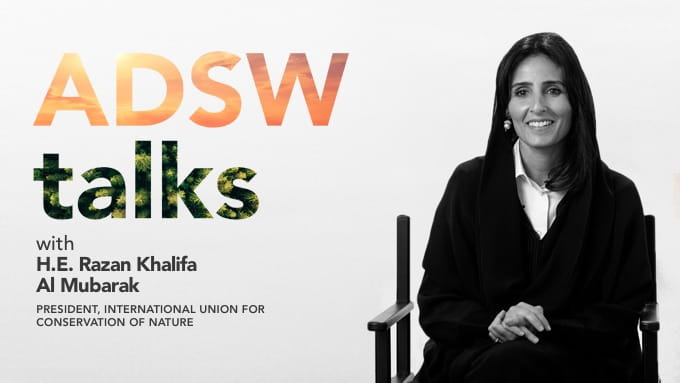Opening Ceremony lays the foundation for cross-sector collaboration and breakthrough solutions.
“Nature can be our ally in the fight against climate change,” H.E. Razan Khalifa Al Mubarak tells ASDW talks.
Climate change and biodiversity loss should be tackled together, said Her Excellency Razan Khalifa Al Mubarak.
For billions of years our planet, its climate and the fabric of life have evolved together, said H.E. Razan, President, International Union for Conservation of Nature.
But in the past 150 years this “rich tapestry of life” has started unravelling, she added in her ADSW talk about climate change and biodiversity loss.
“Nature, the foundation upon which life is based, is in a state of crisis,” she said. “We see it in the rapid decline of species and habitats, and this is happening at a time when we realize that we need nature now, more than ever.”
She called for urgent action to address climate change and biodiversity loss on a local and global scale.
H.E. Razan said that the UAE has long recognized the critical role that “natural capital” plays in the nation’s development and well-being.
That is why the UAE has committed to protecting 30 percent of its land and sea by 2030, by investing heavily in its fisheries and wildlife, she added.
“We need to protect our wild spaces, and restore our degraded habitats, so that nature can be our ally in our fight against climate change,” she said.
The UAE’s role as host of COP28 next year also presents an opportunity for the country to see climate change as a driver of its economic transformation.
H.E. Razan said Abu Dhabi Sustainability Week, which is in its 15th year, has demonstrated its capacity to convene, to communicate and to inspire collaboration on climate action issues and innovation.



